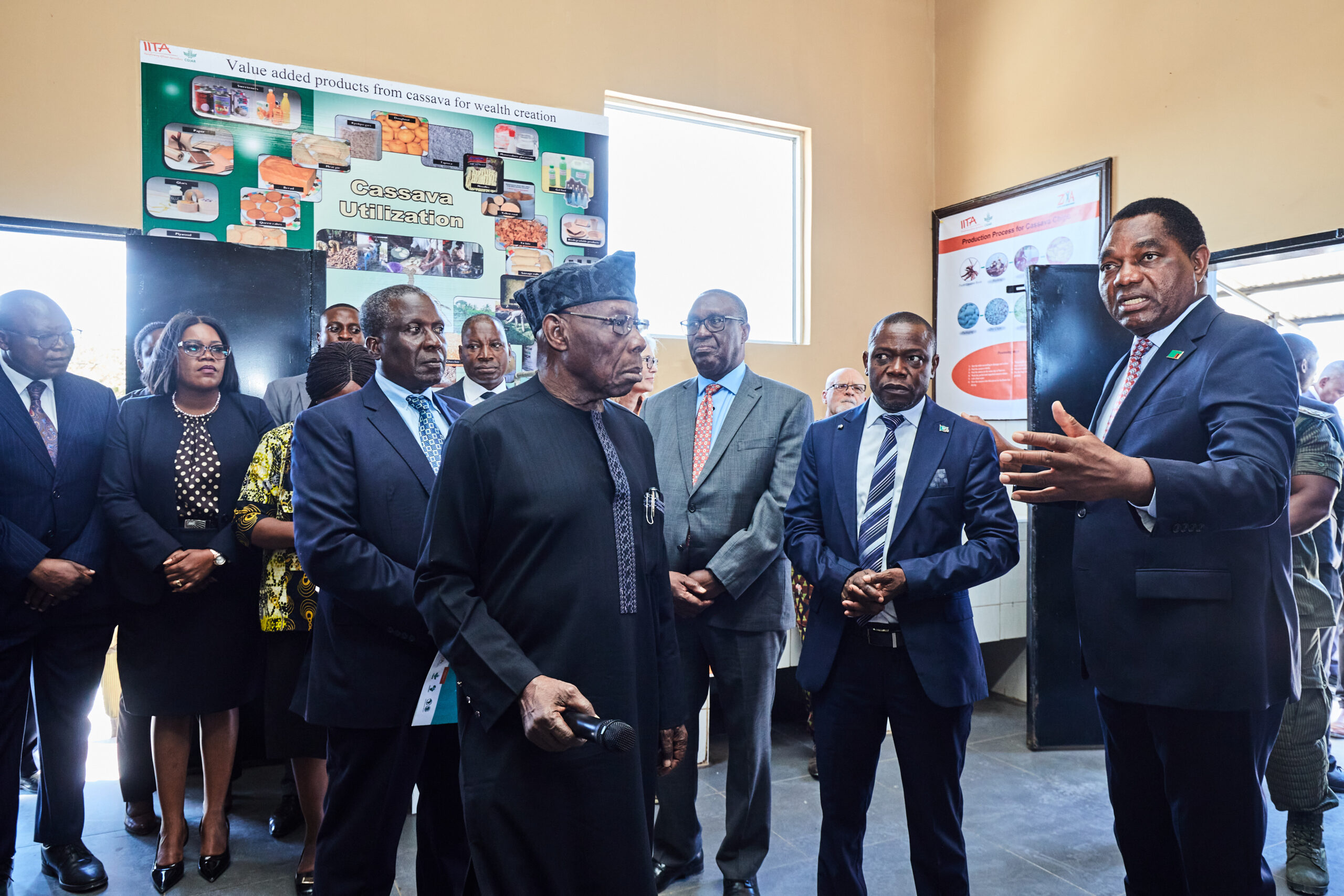
By Mercy Namfukwe
IN an effort to mitigate the advent effects of climate change, government in partnership with International Institute of Tropical Agriculture (IITA) have launched the Southern Africa Research and Administrative Hub (SARAH) and food system research delivery facilities aimed at producing state of the act research technologies.
The partnership will leverage IITA and CGIAR’s expertise in research delivery and agriculture innovation to support Government’s efforts in promoting sustainable agriculture practices, enhancing crop productivity and mitigating the impacts of climate change on smallholder farmers.
The research will work towards addressing critical issues like food insecurities, plant health and seed systems in Zambia and the entire southern region.
Speaking during the launch of the Southern Africa Research and Administrative Hub at the International Institute of IITA held in Chongwe district of Lusaka province recently, President Hakainde Hichilema called for research in the agricultural sector to ensure high levels of productivity is attained.
Mr Hakainde stated that the country must work together to realise the goal of boosting agricultural production and productivity, noting that IITA should help ensure there is enough food production and provide seed varieties which are drought resistance for better yields.
He said smallholder farmers should promote varieties like cassava that are drought resistant and if produced can increase household food security and nutrition.
“Farms should create jobs and value addition for people to improve on mechanization because there is money on the farms therefore youths should be encouraged to venture in agriculture to help sustain their livelihoods,” The President stated.
Mr Hakainde further emphasized the need for collaborations with other stakeholders such as the Economic Community of West African States (ECOWAS) and Southern Africa Development Community (SADC) to support agriculture and attain food security at household level.
And Agriculture Minister Reuben Mtolo expressed happiness for the support that IITA and CGIAR are working with government to developing new varieties and capacity building in the country.
Mr Mtolo added that the ministry is committed to work with other stakeholders to heighten food security in the country amidst climate shock.
And Former President of Nigeria and IITA Ambassador Chief Olusegun Obasanjo described the launch as historical as the hub will ensure food and nutrition security for Zambia and Southern Africa added that there is need to turn agriculture into a business and make it sustainable.
“We need availability of production, processors, marketers and distributors for the agricultural sector to thrive and to achieve this we need youths to venture in agriculture to sustain their living,” he stated.
Meanwhile, IITA Country Director and Regional Director for Southern Africa David Chikoye expressed excitement for hosting the event which he said took lots of planning and engagements.
“IITA will continue to support the Zambian government to achieve the agricultural transformation agenda, enhance food security and promote sustainable development across the country and the region,” Dr Chikoye stated.
He however called upon all the researchers working in the same domain like students to visit and work in those facilities as they focus on working on diversification of farming systems and diets in Zambia and the region to improve access to science and innovations.
Despite Africa’s vast arable land, the farming community is faced with challenges to mitigate the climate effects that needs concerted efforts in scaling climate smart innovations through scientific driven solutions and market based approach to make agriculture sustainable.
Indeed, the establishment of SARAH in Zambia 38 years ago and the launch of the food system research and delivery facilities underlines the commitment of both IITA and government to enhance agricultural productivity, food security and livelihoods for people and the Southern African Region.
The IITA Regional hub in Zambia will serve as a melting pot for innovative research, capacity building and knowledge sharing research and agriculture will further reflect in commitment to drive food systems, transformation to improve the lives for smallholder farmers in Africa. -NAIS
